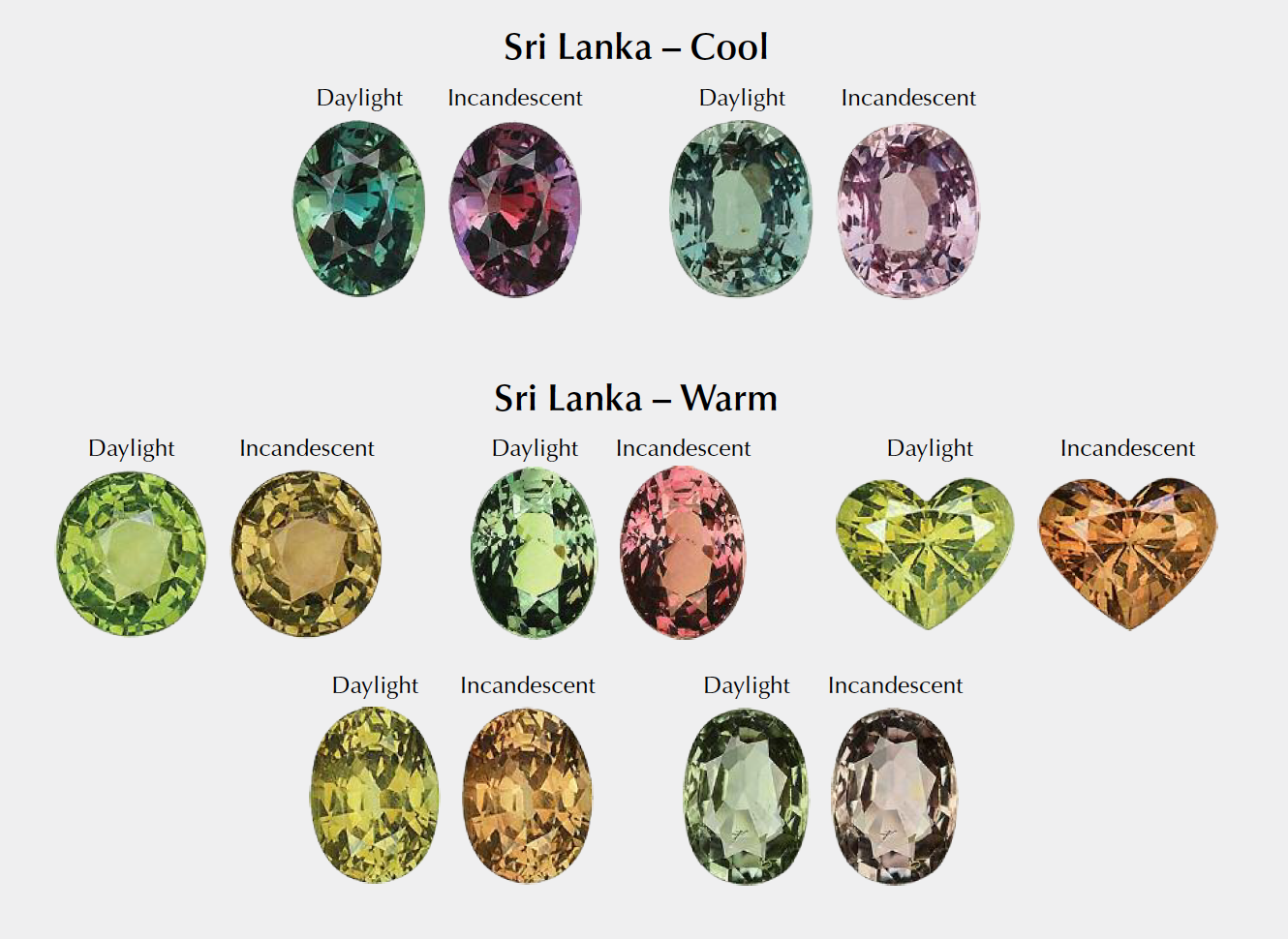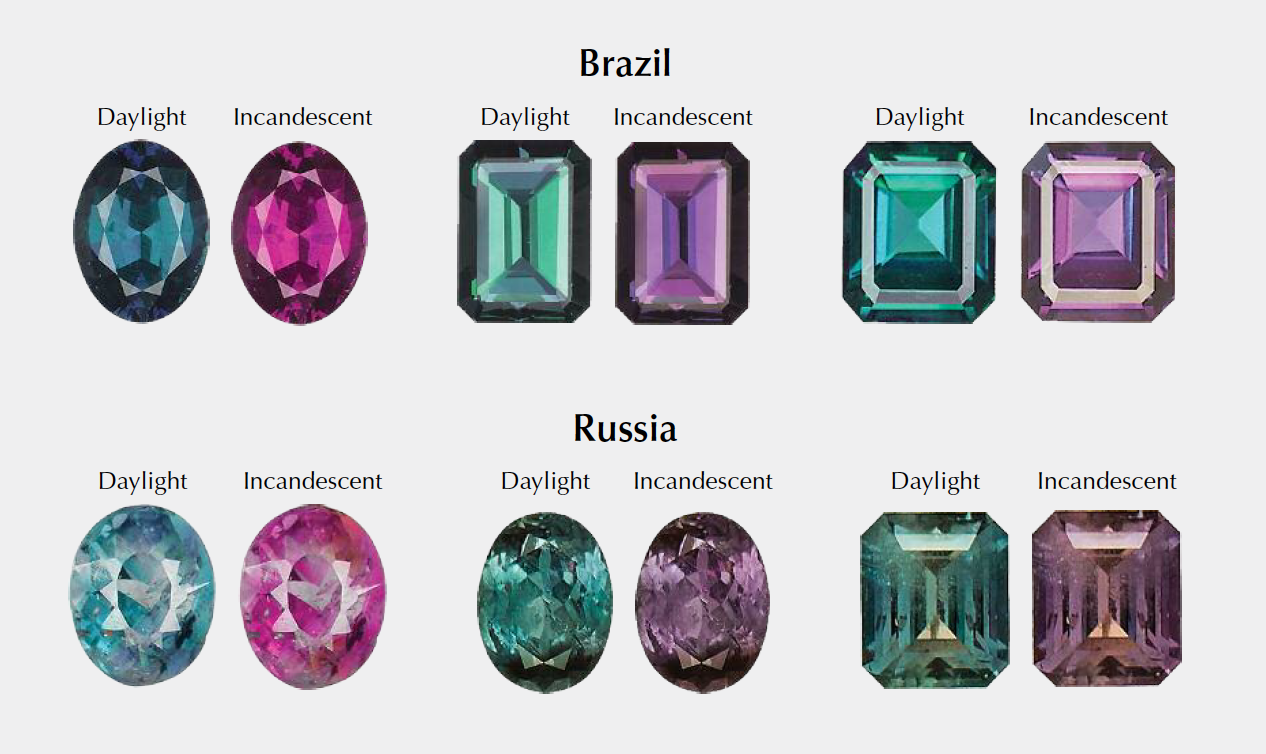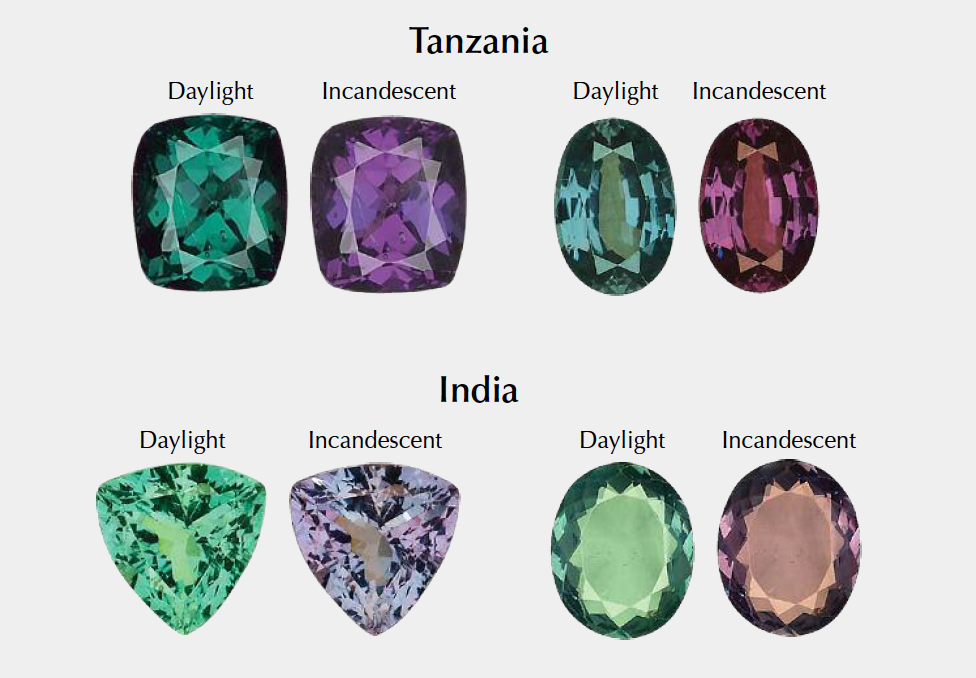The Color Changes in Alexandrites

Even though sri lankan alexandrites typically Have brownish to grayish overtones, some lack These overtones and fall into the cool category. In lighter-toned stones, hue changes from green Or bluish green in daylight to purplish red or Grayish purple in incandescent light. Saturation Is low to medium in fine-quality stones, with a Medium to dark tone.
Specimens in the warm category exhibit the Typical brownish to grayish overtones that Characterize many sri lankan alexandrites. Daylight hues are generally yellowish compared To other alexandrites, ranging from yellowish Green to brownish yellow to the Occasional pure green. In incandescent light, They usually appear brownish, with yellowish Brown, orangy brown, brownish pink, brownish Purple, brownish yellow, and brownish red Hues. Saturation is generally low to medium, With medium to dark tones

Top brazilian stones are generally considered to Exhibit the finest color change of any alexandrites. Most tend to have a bluish component To their daylight color. Their hues are greenish Blue to blue-green to pure green in daylight and Red-purple to purple in incandescent light. These colors are often vivid, with medium to High saturation and medium to dark tone.
Russian alexandrite can exhibit some of the Finest colors in top-quality material. Hues are Generally pure green to bluish green to green-blue In daylight and purple-red to purple in incandescent Light. Stones tend to have medium To high saturation, with medium to dark tone.

Tanzanian alexandrite is capable of producing Superb color change. Hue tends to range from Bluish green to greenish blue in daylight and Red-purple to purple in incandescent light.Tanzanian Stones typically have medium to high Saturation and medium to dark tone.
Hue for indian alexandrite tends to range from Green to bluish green in daylight, changing to Purplish violet, purple, brownish purple, or redpurple In incandescent light. Indian stones typically Have low to medium saturation and Medium to dark tone.
GEOGRAPHIC ORIGIN DETERMINATION OF ALEXANDRITE